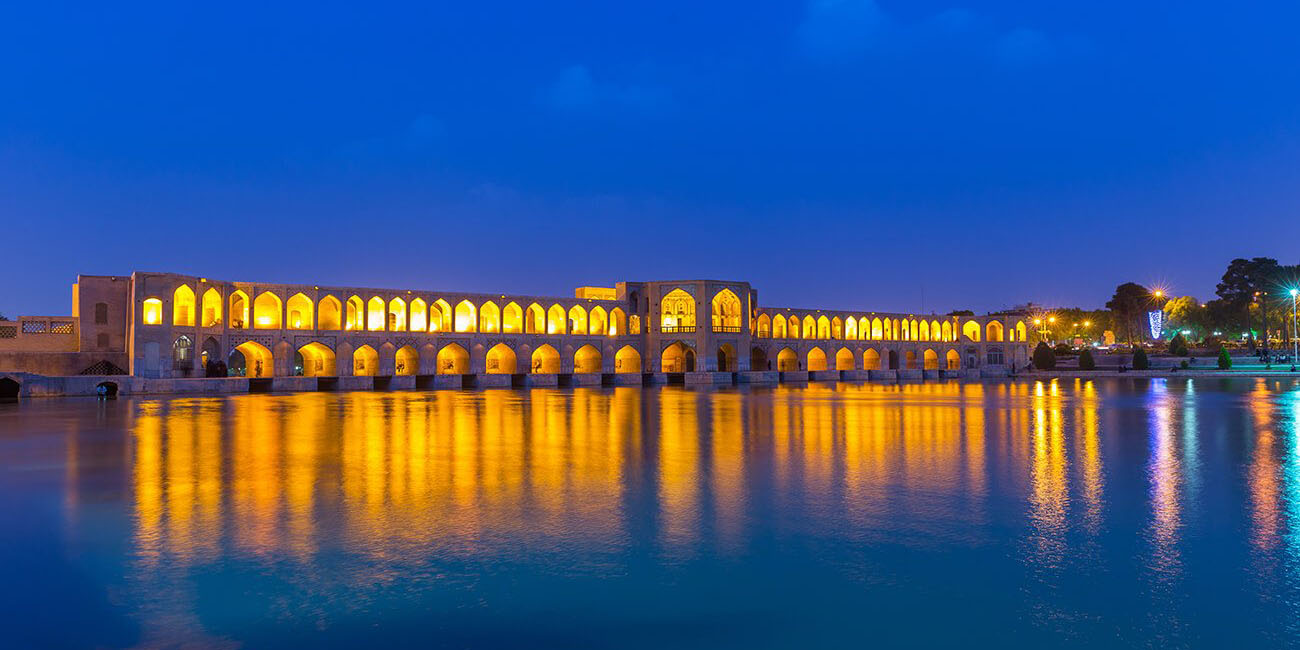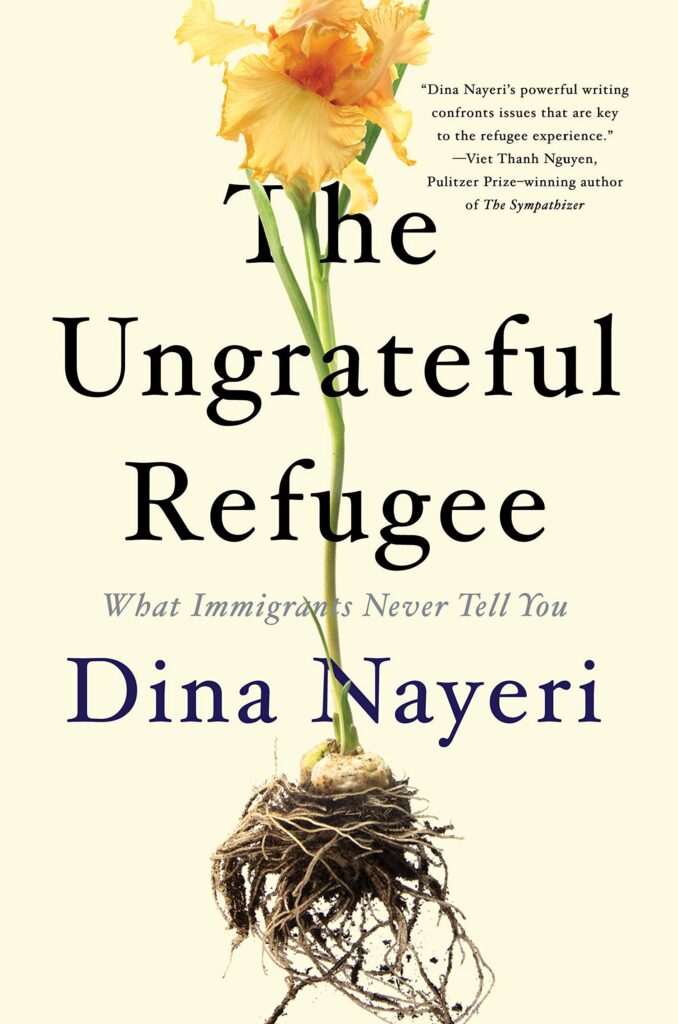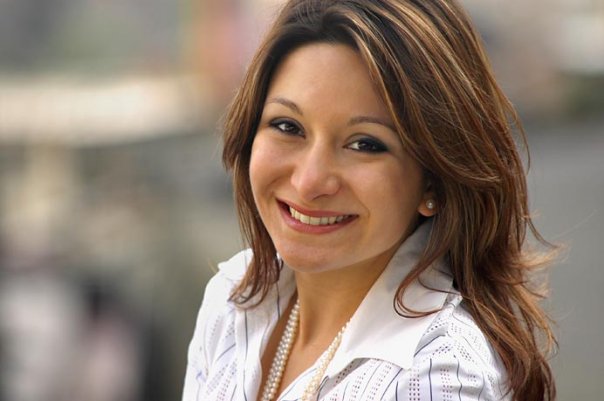
The Ungrateful Refugee: What Immigrants Never Tell You by Dina Nayeri
Catapult Publishing (2019)
ISBN 1948226421
Rana Asfour

Thirty years after American Iranian author Dina Nayeri’s circuitous escape to refuge, from Iran to the United States, and distressed at the increasingly “hostile” and “unhinged” discourse on refugees in 2016, she finally decided to tell her own story as a former refugee in a bid to make sense of the world she’d delivered her daughter into. Her story is one that has, by her own admission, dominated her personality and compelled her every decision for over two decades, finding a way into her two novels, A Teaspoon of Earth and Salt (2013) and Refuge (2017). Her latest, The Ungrateful Refugee, her first foray into non-fiction, was a finalist for the 2019 Kirkus Prize in Nonfiction and winner of the 2020 Clara Johnson Award for Women’s Literature.
In 1985, when Dina was only six years old, her mother, a well-known physician in Isfahan, converted to Christianity in England while on a visit to Dina’s maternal grandmother. And so Maman Moti had left Iran before the revolution, become a Christian and resolved to turn her back on the country and its people. “We had hoped for asylum in England,” writes Nayeri, but, “Maman’s mother, had, I was told, refused to sponsor us … she wanted nothing to do with our post-revolutionary troubles.”
With no recourse but to return to Iran and buoyed by her new faith — with a huge cross dangling in her windshield — Nayeri’s mother joined an underground church and became heavily engaged in proselytizing, handing out tracts to her patients — an act punishable by death in Iran. Despite the parents’ well-respected status in Isfahan, where they had medical offices, friends in high places and degrees from Tehran University —and although Dina’s Baba remained Muslim — it wasn’t enough to protect Maman from arbitrary arrests or to preserve Dina from abuse at school where teachers would constantly pull her aside, “to a bench between the toilet cave and a nightmarish Khomeini mural,” to ask her again and again about her religion. When she would incessantly declare herself her apostate mother’s ally, the abuse worsened. “Villainy starts on native soil,” she writes, “where rotten people can safely be rotten, where governments exist for their protection…Since our return from London, we had lost our native rights; we were exiles in our own city, eyes suddenly open to the magic and promise of the West.”
And so, it wasn’t until 1988, after enduring the Iran-Iraq war, random arrests at the hands of the Gashte-Ershad or “Guidance Patrol” and ultimately a threatening visit from the Sepâh under whose tyranny an unprecedented purge of intellectuals, leftists, and political dissidents disappeared or were massacred, that Dina’s parents finally decided that the time had come for the family to flee. Despite her father’s decision to remain in Iran, he managed, thanks to his influential patients, to secure places for his wife and two children aboard a cargo plane headed to the United Arab Emirates, a flight that would henceforth mark the beginning of their eighteen-month wandering, first as illegal residents in a cockroach-infested apartment in Dubai, then as asylum seekers “fighting boredom” waiting for sponsorship letters in a refugee camp in Italy, until finally heading to Oklahoma after being granted entry into the US — the refuge that would allow them to build their life anew.
Once in an Oklahoma church, a woman said, “Well, I sure do get it. You came for a better life.” I thought I’d pass out—a better life? In Isfahan, we had yellow spray roses, a pool. A glass enclosure shot up through our living room, and inside that was a tree. I had a tree inside my house; I had the papery hands of Morvarid, my friend and nanny, a ninety-year-old village woman; I had my grandmother’s fruit leather and Hotel Koorosh schnitzels and sour cherries and orchards and a farm—life in Iran was a fairytale. In Oklahoma, we lived in an apartment complex for the destitute and disenfranchised. Life was a big gray parking lot with cigarette butts baking in oil puddles, slick children idling in the beating sun, teachers who couldn’t do math. —Dina Nayeri
Once in Oklahoma, Nayeri is ten years old. She spends the first two years learning English and understanding the culture. Despite the family’s feeling of hope that they had found a new place to call home, Nayeri’s initial experiences are brutal. Surrounded by people who know nothing about Iran, her mother faces “professional hostility” as a doctor from Iran as well as requests for her to “perform” her story in its skeletal form: the story of being saved by benevolent Americans.
Dina’s time at school didn’t prove any better than in Iran when it came to bullying, despite spending her teenage years dedicated to diligently fitting in with her environment, “murdering” all connections that tied her to Iran. In the process she was able to shed her accent and attend Harvard — she holds a B.A. from Princeton University and a Master of Education and MBA from Harvard University. So desperate was Nayeri to prove her worthiness as a “palatable immigrant,” that she made no fuss when the kids at school labeled her with vulgarities like “cat-eater,” “terrorist,” and “sand nigger.” Describing that time of her life, Nayeri writes of an “uprooting and transformation without guarantees, of remaking the face and the body, those first murderous refugee steps — the annihilation of the self, then an ascent from the grave.”

Besides her personal experience, Nayeri peppers her book with case studies of refugees and asylum seekers in recent years from Iran, Afghanistan, and Syria currently languishing in camps in Greece waiting indeterminate stretches for their asylum papers to go through. From interviews conducted in 2016, with the help of Paul Hutchings, the cofounder of Refugee Support, a charity that goes from camp to camp erecting stores with their own currency to distribute donated food and clothing — to give refugees their familiar neighborhood grocery, readers get a vivid picture of the bitter truths and tragic circumstances refugees are up against. Nayeri’s cut throat arguments for dismantling the destructive language of disaster often used to describe incoming refugees — deluge, flood, swarm, ungrateful, opportunists, economic migrants and liars — leave readers in no doubt that if anything, refugees are under no obligation to be grateful. Instead, the winner of the UNESCO City of Literature Paul Engle Prize, believes that the “few broken and wretched lives the richest nations take in, should do so graciously,” that opportunism is a lie created by the privileged to shame the suffering strangers, and that the asylum process “like the tax system and property and everything else, is biased against the poor and the uneducated, the very people most likely to be running out of fear.” She makes the argument that in conversations about the refugee crisis, educated people continue to make the “barbaric argument” that open doors will benefit the host nation. The time, she believes, for this outdated colonialist argument has run out: “migrants don’t derive their value from their benefit to the Western-born, and civilized people don’t ask for résumés from the edge of the grave.”
What Nayeri’s experience and that of the other refugees in her book reveal is that stories and storytelling have the power to change lives, both literally and metaphorically. “Everyone has a story, having just slipped out from the grip of a nightmare,” writes Nayeri. However, refugees and asylum seekers are often forced to make their facts fit narrow conceptions of truth in order to become believable and palatable. Instead of finding truth in grieving, fearful eyes, in shaking hands, in the anxiety of children and sorrow of the elderly, the asylum officer — who appropriates the rules of good storytelling — fails to realize when sitting across from a petitioning refugee, that s/he is speaking to a character in the story, and is not the author. Refugees are expected “to tell the story the English way, or the Dutch or American way. Americans enjoy drama; they want to be moved. The Dutch want facts, the English have precedents, stories from each country deemed true that year, that month…Americans like the possibility of a grand success story; they adore exceptionalism and want to make all the greatness American.”
Nayeri maintains that what people crave in a successful survival story is not necessarily the realization of the self or the fulfillment of individuals’ true potential, but a desire for refugees to become them. “To crave transformation from each other — to want others to change into us — seems a natural survival instinct of the ego,” she writes. “But in forcing assimilation, are we asking for performance? We want to see that newcomers are happy, grateful, that they’re trying. But real gratitude is private, it cannot be channeled and it doesn’t present itself loudly, in lofty gestures. And learning to posture is a much quicker process than transforming — to quell nativist fears we grill burgers and attend church, listen to Coldplay, buy old polo shirts. What if one day, we learn to like those things? Which is a truer moment of change?” she asks. Kindness, she believes, is key. The type in which hosts realize that the toiling, fast-succumbing immigrant is gesturing peace and gratitude —considering all it took to get there — and therefore to relieve them from the obligation of posturing.
Dignity, not shame, should be the dominion of refugees and asylum seekers, and that is what lies at the heart of this book. “Whether born into safety or danger, sometimes people need to be rescued … after rescue, they need balance, work and rest, love, home. They need a chance to figure themselves out. The painful work of forging a new face must be slow, starting within.” Refugees, like most outsiders, won’t help themselves be seen, with an instinct to self-sanitize and to hide their moral struggles, for the benefit of the powerful. This shame, she explains, has contributed to a cynical, sedated world wherein being a fully realized human is the privilege of whites, Christians, and the native-born. Ensuring dignity for those in need, advocates Nayeri, means that we all have a duty to step up, as individuals and governments, to work harder to welcome refugees, and to help them thrive if we are to create multicultural communities that are ready for the future. We owe it to them to ask ourselves painful questions: Why is it, that to some, help must always come with a slap on the wrist? Why do we ask the desperate to strip off their dignity as the price of that help? And why is it that if you are born in the Third World, and you dare to make a move before you are shattered, then your dreams are deemed suspicious, “you are a carpetbagger, an opportunist, a thief and you are reaching above your station?”
In the last part of the book Nayeri returns to her story and feels that being a former child refugee has turned her into a nomad, a chameleon, a person who constantly craves resettlement and the urge to start over — since leaving Iran, Nayeri has lived in the US, the UK and France. Inhabiting different places has given her a clear view in recent years on how people’s attitudes and the governments’ sense of duty towards refugees have shifted considerably when compared with the time her family sought refuge in the West. Today, the acrimonious vitriol springing from “nativist fury” has grown not only louder but become more dangerous. Waits in camp for asylum papers are longer, competing dangerously against finite resources. “What,” she asks, “is hell enough for the West to feel responsible, not just as perpetrators of much of the madness, but as primary beneficiaries of the planet’s bounty?”



